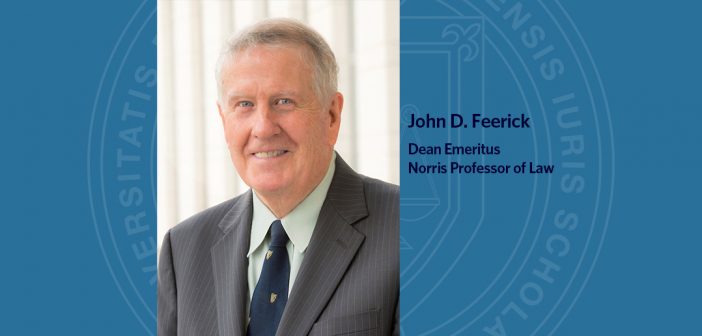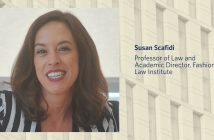Fordham Law Dean Emeritus John D. Feerick, FCRH ’58, LAW ’61 shares his story behind one of the last amendments to the Constitution—the 25th Amendment, which deals with presidential succession and inability—with NPR’s Rund Abdelfatah and Ramtin Arablouei on the latest episode of THROUGHLINE. The episode is part of NPR’s series We the People.
FEERICK: I was vice president of my class and also the student body. That service experience was very important because I saw that you could make differences.
ARABLOUEI: And it was in the college student government where John had his first experience with the problem of succession of power in the most nerdy, dramatic kind of way.
FEERICK: I remember when I was vice president of the student body at Fordham College in my last year, I had to deal with the inability of a newly elected president.
ARABLOUEI: Inability, as in the president is unable to serve.
ABDELFATAH: What with that mean?
FEERICK: A medical issue.
ABDELFATAH: A medical issue?
FEERICK: Yeah, he had a medical issue.
ABDELFATAH: A medical issue. OK.
FEERICK: And as soon as he was elected, he resigned.
ARABLOUEI: The president of the student government stepped down, and suddenly, everyone had an opinion about who should succeed him. Some people called for a new election. But remember, John was the student body vice president.
FEERICK: I said that under the Constitution, the vice president becomes the president, and it’s not going – there not should not be a new election.
ARABLOUEI: A standoff. But Fordham had a student court – I’m not joking here – that would decide these kinds of matters.
FEERICK: And they sustained the position I had taken, that the student constitution provided for succession.




